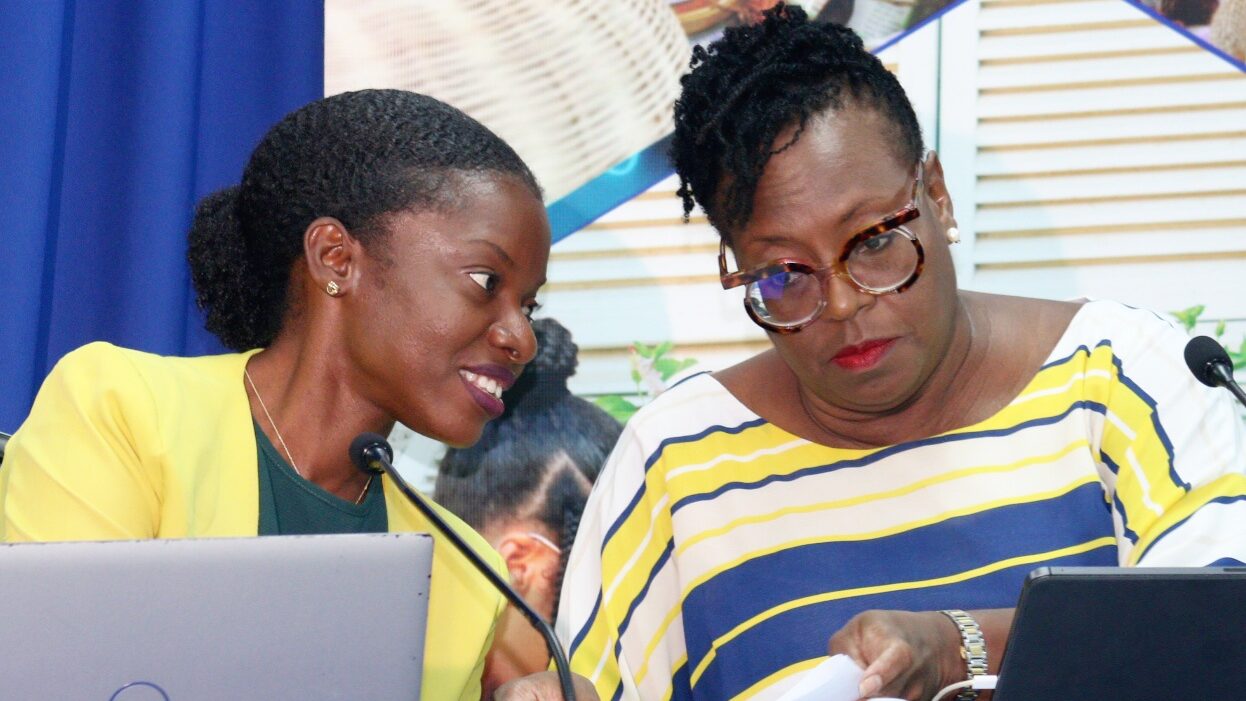Ministry of Education Issues Apology Over Principal Reassignments, Vows Improvement: A Recap

September 12, 2024
Ministry of Education apologizes for last-minute principal reassignments and exclusion of acting principals from interviews. Measures to improve accountability and support for educators announced. Association of Public Primary School Principals criticizes handling.
In the face of criticism from the nation’s public primary school principals over last-minute reassignments of school principals and the exclusion of acting principals from permanent appointment interviews, the Ministry of Education has issued an apology.
At a press conference on Wednesday, Minister of Education Kay McConney and senior civil servants acknowledged mistakes were made in the reassignments of 11 principals, who were given just one day’s notice that they were expected to report to their new schools.
The minister gave an assurance that measures would be implemented to improve accountability and provide greater support for affected educators.
She is banking on a dedicated Teaching Commission to manage recruitment and appointments and reduce delays caused by the current system.
“We really have to come up with a better way of doing assignments, appointments, and transfers in a manner that will be reasonable for those who are impacted,” McConney told journalists.
The Association of Public Primary School Principals (APPSP) had earlier condemned the ministry’s handling of the matter, with president Olwin Walker describing the short notice for principal reassignments as “unjust and disrespectful”. Walker also highlighted the exclusion of 24 acting principals from interviews for permanent appointments and raised concerns over delayed salary payments, all of which, she said, had caused undue distress among educators.
McConney explained that the current delays stem from the broader public service framework, which oversees appointments for all government employees, not just those in education.
She admitted that there was a need for the ministry to improve its processes, especially regarding timely and organised transitions for educators.
“What I will say is that I believe that in any professional system, including a public service, wherever it is in the world, that persons who are being assigned and transferred and made to transition in various ways, that that is an activity that needs to happen in a timely manner and with the proper notification for people to make the adjustments they need to make,” she told reporters.
The minister also stressed the importance of fairness and clarity when managing the movement of educators and acknowledged that individuals respond differently to change.
“Some people are easier at dealing with change than others. Some have other demands that will require them to make other adjustments that others do not. But I think in fairness to all, whether it is with our teachers or it is our public service generally, we really have to come up with a better way of doing assignments, appointments, and transfers in a manner that will be reasonable for those who are impacted,” she said.
McConney noted that the Ministry of the Public Service does all the hiring and appointments of people in the public service.
She reiterated the government’s ongoing efforts to establish a dedicated teaching commission to help streamline the recruitment and assignment processes within the education sector. This body will be tasked with handling all recruitment, promotion, and disciplinary matters within the education sector, thereby reducing the delays caused by the current system, where these processes are managed under the broader public service framework.
“The prime minister has committed, and she is following through on her commitment. Significant progress is being made towards setting up a teaching commission that would then allow the matters related to the education sector—the recruitment and the discipline and the promotions and all that goes with that—to be handled by its own commission rather than being a part of the general picture, which slows down the process.
“The systems and the volume are such that it makes it difficult to do things the way it ought to. And so I look forward to the continued work that our Prime Minister has already started with regards to establishing the teaching commission that will hopefully seek to alleviate some of the challenges that we are now having,” the minister said as she gave an assurance to the public that this reform would help alleviate many of the current challenges.
Permanent Secretary Wendy Odle also addressed the issue, offering an apology to the affected principals: “We do acknowledge that we have had a lot of missteps along the way…. I would want to apologise to our principals who received late notice because that is not our intention.”
Odle highlighted the emotional and mental toll that such sudden changes can have on educators and stressed that the ministry was committed to improving communication and planning in the future.
She added that support systems were already in place to help principals transition into their new roles. “Our principals will not be going into new schools having to start from scratch. There are already teams in place to assist them.”
Chief Education Officer Dr Ramona Archer-Bradshaw expressed the ministry’s commitment to working collaboratively with principals and holding individuals accountable for the recent missteps.
“Even though we strive for perfection, we are not perfect,” she said while stressing that steps were being taken to address both internal and external factors that contributed to the delays.
She praised the principals for their professionalism and willingness to move forward. “We have these things to do, and they showed their willingness to be ready, to be set, and to go. I appreciate our principals at the primary level, at the secondary level, the nursery level, the special schools—I appreciate them for that.”


